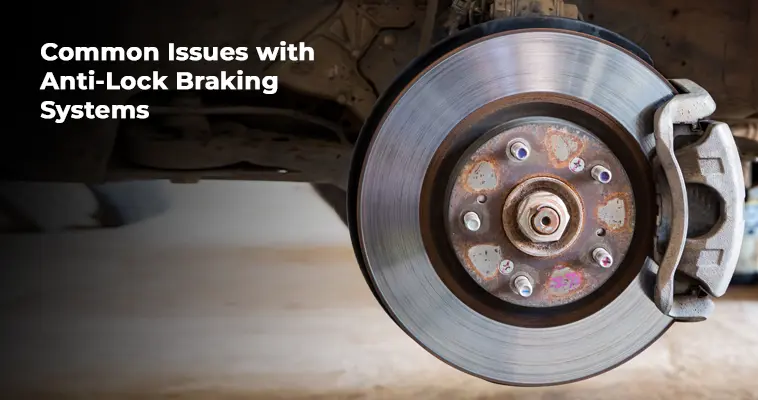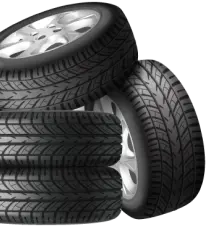Modern cars, especially European models like BMW, Audi, and Mercedes, are equipped with advanced safety technologies. One of the most essential parts is the Anti-lock Braking System (ABS), which prevents wheel lock-up during sudden or hard braking. This helps maintain steering control and stability, even in emergencies.
However, like all systems, ABS can wear down or develop faults over time, primarily if your car hasn’t been serviced after 10,000 to 15,000 km.
When your brakes start showing warning signs, don't leave it to chance. At BCS Workshop, our mechanics can handle ABS diagnostics and brake repairs, getting to the root of the problem before it puts you and others at risk on the road.
Call BCS Workshop today at +61 3 9501 0011
In this blog, we’ll highlight how ABS works, common warning signs of a failing system, and why regular brake servicing is essential, especially for European makes and models.
What Does the ABS System in Your Car Do?
The ABS (Anti-lock Braking System) improves your car’s safety by preventing the wheels from locking when you brake forcefully or unexpectedly. This helps you maintain steering control, especially on slippery surfaces like wet or icy roads. Without ABS, the risk of skidding increases, reducing your ability to steer or stop safely.
The system relies on several components, including wheel speed sensors, valves, a control module, and an ABS pump. If any of these components fail, the ABS warning light will appear on your dashboard, indicating the need for attention.
What are the common problems with the ABS system in cars?
Here are the most common ABS-related issues that car owners encounter:
1. ABS Warning Light Doesn’t Turn Off
One of the first signs of a problem with your ABS is the warning light on your dashboard. It’s normal for the ABS light to illuminate temporarily when you start your car, but it should turn off after a few seconds. However, if the light stays on or comes back while you’re driving, it’s a clear indication that there’s a problem that needs attention.
Common causes include a damaged wheel speed sensor, low brake fluid levels, or a malfunctioning ABS control system. While your regular brakes may still work, a faulty ABS increases the risk of wheel lock-up and reduced control, raising the risk of skidding, especially in wet conditions or during sudden brakes. If you notice this warning light, we recommend booking a car service near you to identify and resolve the issue before it compromises your safety.
2. Wheel Speed Sensor Failure
Each wheel is equipped with a sensor that monitors its rotational speed. The ABS system relies on this data to apply or release brake pressure during sudden stops, helping prevent wheel lock-up. However, when a sensor fails or sends inconsistent signals, the system can’t respond accurately, resulting in either loss of ABS support or uneven brake performance.
These sensors are constantly exposed to heat, grime, and road debris. Over time, generally between 60,000 to 80,000 km, they may wear out or become coated in dirt. Regular inspection and cleaning as part of your car brake service can help identify and resolve these issues before they affect your safety.
For more information on how proper maintenance affects your driving, you can also check our blog on Wheel Alignment vs. Balancing and which one solves your driving issues here.
3. Faulty Hydraulic Pump or Valve Block
The ABS hydraulic pump builds brake line pressure and sends brake fluid to the wheels that need it most. When the pump fails, you may feel a stiff brake pedal or notice that your car takes longer to stop. The valve block plays an equally important role; it controls how the system applies and releases brake pressure to each wheel.
Cars that have crossed 100,000 km often face failures in the ABS pump or valve block. When these components start to fail, the ABS may work intermittently or stop functioning altogether. If your brake pedal feels off or your stopping distance increases, ask your mechanic to test the ABS pump and valve block.
4. Corroded or Damaged Wiring
The ABS sensors transmit critical signals to the control module via electrical wiring located beneath the car. These wires are exposed to moisture, road debris, and even rodent damage, making them vulnerable over time. If your ABS stops working after heavy rain or driving on rough terrain, corroded or damaged wiring could be the cause.
Faulty wiring can also trigger false warnings or disconnect the sensors entirely. To prevent major faults and unwanted ABS alerts, make sure your mechanic inspects these connections every 40,000 to 50,000 km as part of your car's brake service.
5. Low Brake Fluid Levels or Leaks
The ABS system depends on stable brake fluid pressure to function effectively. Low fluid levels can weaken your overall braking performance and stop the ABS from engaging when it’s needed most. Worn brake pads, leaking reservoir seals, or damaged brake lines are common causes of fluid loss.
It’s recommended to check your brake fluid every 10,000 km, especially if your car is more than five years old. If the fluid appears dark or has a burnt smell, it’s time for a replacement. During your next service, the mechanic should inspect the braking system thoroughly for leaks, worn components, and air in the lines.
For more detailed guidance on how often vehicle owners should check and change brakes and brake fluid, you can read our dedicated blog here.
6. ABS Module Malfunction
The ABS module is the brain of the system. It processes sensor data and tells the pump and valves how to react. If the module fails, you’ll lose ABS support entirely, and in some cars, this might even affect traction control or electronic stability systems.
Modules generally last over 150,000 km, but moisture, electrical overload, or old age can cause early failure. Replacing a faulty ABS module can cost more than $800 in parts alone, so early diagnosis through a car service can help avoid major expenses.
7. Air in Brake Lines
Your car’s brake system relies on stable hydraulic pressure. When air enters the brake lines, often after repairs or due to a lack of maintenance, it compromises this pressure, leading to a soft brake pedal and reduced braking performance. In severe cases, it may affect ABS function.
Brake lines should be inspected if your car is over three years old or has recently had brake work. To maintain optimal performance, change the brake fluid every two years or 40,000 km to prevent air and moisture contamination.
8. Brake Pedal Feels Uneven or Pulsates
ABS is designed to create a pulsing sensation in the brake pedal during emergency stops. However, if you notice vibrations during regular braking, it may indicate issues such as a warped brake rotor or an ABS controller misreading sensor inputs.
Cars that are driven in stop-and-go traffic or on steep terrain often experience these signs earlier, sometimes before 80,000 km. If your pedal pulsates unexpectedly, schedule a car brake service near you to avoid potential complications.
9. Unusual Noises During Braking
Clicking, grinding, or buzzing noises while you apply the brakes may indicate ABS-related issues, such as faulty sensors or unnecessary system activation. These problems are more common in older cars with over 120,000 km due to worn components or poor electrical connections.
If you hear unusual brake noises, even at low speeds, book an inspection to identify the cause and maintain brake safety.
10. Delayed Braking Response
ABS is designed to enhance brake response, not delay it. If there's a noticeable lag between pressing the brake and the car reacting, it could indicate issues with the ABS relay, pump, or sensors.
This is more common in cars driven daily in heavy traffic or those overdue for a brake fluid change.
Why Choose BCS Workshop for Your ABS and Brake Service?
At BCS Workshop, we understand how important braking safety is for your daily drive. We offer complete brake system inspections, repairs, and ABS diagnostics customised for European cars like BMW, Audi, Mercedes-Benz, and more. Our approach is focused on clear communication, transparent reporting, and effective service.
We recommend a complete brake inspection every 10,000 to 15,000 km to maintain optimal safety and performance. Whether you're driving long distances or just around the city, we use advanced tools to ensure your ABS system works properly and meets your car manufacturer's standards.
Take Away
The Anti-lock Braking System (ABS) plays an important role in car safety. Warning lights, unusual pedal response, or irregular brake performance may indicate underlying issues that require attention. Routine brake system maintenance helps ensure reliable performance and road safety. If your car is due for a brake inspection or service, we recommend booking a car brake service near you to maintain optimal brake performance.
Contact our car mechanic near Clayton to inspect your anti-lock braking system or provide a complete car brake service. BCS Workshop is conveniently located just a few minutes’ drive away.
Contact our conveniently located workshop today to maintain your car in optimal condition.









